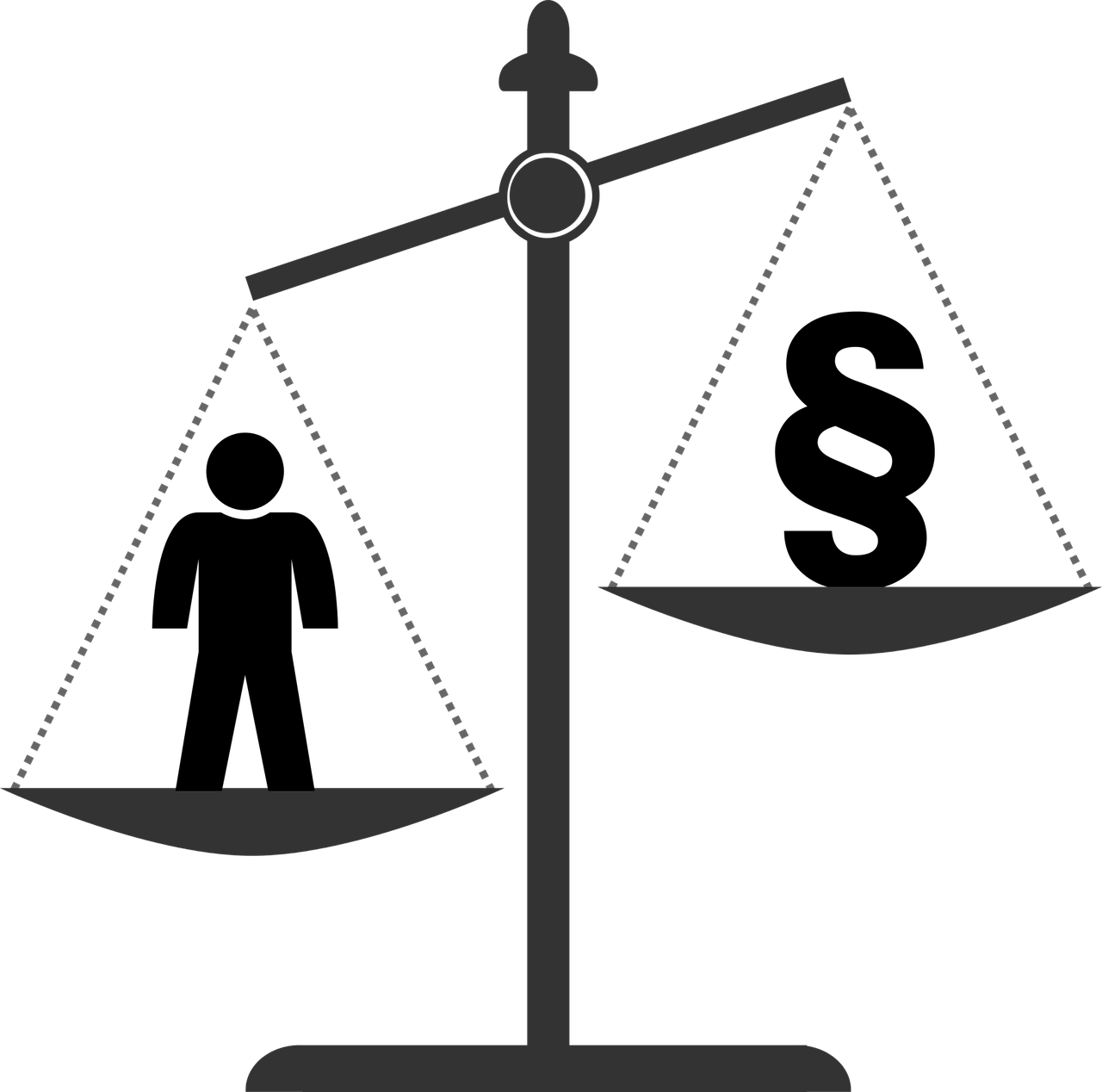NOTICE: This post references card features that have changed, expired, or are not currently available
The following is not legal advice. Please contact the author (alex@bachuwalaw.com) or your own attorney should you have questions.

Overture
This Who’s to Blame mini-series will serve as a useful illustration of the consumer arbitration process. I will be documenting the steps taken on behalf of my client in order to bring about a suitable resolution.
Act I: The Gift Card Order
Who does not love Hyatt gift cards? Portals often sell Hyatt Gift Cards for less than face value resulting in great deals for the savvy traveler. Indeed, many bloggers write posts highlighting when Hyatt Gift Cards go on sale or are stackable with other promotions. For these reasons, it should come as no surprise that one of our points brethren purchased Hyatt Gift Cards from the auction house eBay at a decent discount. The order was for two cards: one had a face value of $400 and was sold for $320. The other had a face value of $500 and was sold for $425. The cards came to the purchaser and he verified that the credit was on them before giving the seller positive feedback. With no imminent plans to go on a trip, the points traveler did not make immediate use of the cards. This proved to be a costly mistake.
Act II: The Zero Balance
When it came time to redeem the gift cards, the points traveler encountered error after error. After calling Hyatt Gold Passport, the traveler was informed that his gift cards had a zero balance. Frantic and confused, the traveler sprung into action. First, he contacted the eBay seller. Then he filed a claim with PayPal. Finally, he did his best to find a live human at eBay to assist him, a thankless task.
Because it had been months since the original transaction, PayPal claimed that nothing could be done. The points traveler was at the mercy of the seller who brashly sent him a message mocking him for not being more aware of scams on eBay. For its part, eBay did nothing but point him back to the FAQ section. As for Hyatt, it washed its hands clean of the incident by curtly saying that they were not responsible.
Act III: Legal Recourse
If one were to Google ‘lawsuit eBay’ or ‘sue PayPal’, the list of complaints would go on and on. Search ‘Hyatt Gift Card Scam’ and the list of victims is endless. In response to these situations, travel forums have the standard recommendations for what can be done: “Take the seller to court!”, “File a class action against Hyatt!”, “Tweet at all of them!”. An understandable visceral reaction to being swindled is to go after everyone. Given the frequency of the problem, it does not seem far-fetched when forum commentators cry conspiracy. It also does not seem unreasonable when they call for those injured to file a class action to address this pervasive problem.
In order to solve this problem, it must be determined who is to blame for what has transpired. For ethical and legal reasons, one cannot randomly file a claim against all the parties involved in the hopes of finding relief. The complications of moving forward are exponentially greater if the aggrieved party is seeking justice through a class action lawsuit. In this case, the hurdles that must be overcome in order to prevail in a class action are beyond that scope of what the points traveler is seeking– his money back.
Enter Stage Right: The Consumer Attorney
Overwhelmed, the traveler, a reader of The Fine Print, contacted me to see what could be done. Fresh on the case, the first step I will take is to examine the dispute resolution agreements for all potential respondents. Here, eBay and PayPal have mandatory arbitration agreements in the event there is a dispute. I still have to determine Hyatt’s policy for dispute resolution. After that, I will compose a list of questions in order to ascertain who is ultimately responsible.
Intermission
As the case moves forward, I will post the details of what I am doing to best solve this puzzle. If I choose to file an arbitration claim, the timeline from the initial filing through the actual hearing, should the case not settle, is roughly three months.
Disclaimer: I was given permission by my client to share these details. Otherwise they would be privileged and confidential. If you are a consumer who has been injured, please contact me at alex@bachuwalaw.com





[…] aggressive way to signal to the claimant that the corporation is actually the one in control. Some corporations like eBay include clauses in its arbitration agreement that if a claim is found to be frivolous, the consumer will be […]
[…] Call the company. Get put on hold. Email the company. Receive an automated response. Repeat, repeat, repeat. When it is all said and done, time is wasted and nothing is accomplished. That was the experience with eBay and British, two cases presented in the Fine Print Series. (see Should You Record Your Calls for Quality Assurance? and Who’s To Blame: eBay, PayPal or Hyatt?) […]
Great comment! I didn’t even bother reading his tirade. Incidentally, I found a favorable resolution for my client. I’ll write a follow-up post on it.
@CJ, Ignoring your know-it-all obnoxiousness, and speaking as a (nother) lawyer, companies are responsible for all kinds of things, as well they should be. But for lawyers willing to pus back on behalf of the consumer, we would live in a terrible world of constant caveat emptor. We are not a third world country run by wealthy corporations.
and FYI,
No consumer is at the mercy of a company here…
An INDIVIDUAL bought the card FROM another INDIVIDUAL. e-Bay didn’t steal the money, Paypal didn’t steal the money, and Hyatt didn’t steal the money.
Ebay probably made all of 10% off the card listing price at the most.
Paypal made all of 3% off the transaction of sending money between individuals.
and
Hyatt made whatever the card sold for minus overhead, the value of the profit made on the room(s) after expenses, and etc.
None of those companies STOLE the money because a company can’t use a gift card… A company is literally a piece of paper… It cannot call a hotel and book a room or sell a gift card to someone else… The only person to blame is the person who ACTUALLY stole the money… The companies listed should not be responsible for paying back the money that they did not get unless this card was bought from an AUTHORIZED RETAILER of Hyatt Gift Cards in which case Hyatt is responsible for their system getting hacked. I feel for the person who got their money jacked because of this, but that is how it is… Who knows, maybe the card was stolen from someone else also and sold on ebay so there is more than one victim here… But in the end, whose fault is it? The INDIVIDUAL that stole it… Case Closed.
I never get the point of using caps to make a point. Nor do I get the snarky ‘FYI’ and ‘case closed’ comments. I’m glad you are not my attorney.
We shall see how this plays out. No promises or guarantees were given to the client that he would prevail. He understands that he may be out of money. That does not mean that I won’t do my best to figure out ‘who’s to blame’ as the title of the post suggests.
Wow, you must not have actually gone to law school… I literally just gave you the exactly what any lawyer worth their keep is going to look for if they know anything about what they are doing… Arbitration will get you nowhere, you will be denied unless someone literally feels sorry for you…
Lets break your case down, you have 3 pieces of evidence.
1) Your client has a ebay receipt for an auction.
You present this to a judge and he says, ok, did ebay complete the auction? It appears the customer got the card in the mail and was able to leave feedback. You open your mouth at all and the lawyer from ebay argues about the 30 day policy…
Judge: Do you believe that ebay inc used this card and stole this money from the customer? Do you have any proof?
(I am going to answer no here for both just so i can move on since you don’t state you have any proof)
What is your argument from here with e-bay after this point?
2)Your client has a paypal receipt… You present this to a judge and he says, ok, did Paypal complete the payment? It appears the funds were taken from the payment method and the customer got the card in the mail. You open your mouth at all and the lawyer from paypal argues about the 30 day policy…
again…
Judge: Do you believe that Paypal inc used this card and stole this money from the customer? Do you have any proof?
(I am going to answer no here for both just so i can move on since you don’t state you have any proof)
What is your argument from here with Paypal after this point?
2)Your client has a Hyatt Gift card… You present this to a judge, he asks you for a receipt. You hand him a paypal receipt that does not detail a specific card number on the invoice. You can explain it any way you like, but there is no way to prove that the paypal receipt you gave him corresponds with the gift card… Why? Because you bought if from an individual and not an Authorized Hyatt Retailer…
You have no legal recourse here, if you take them to court, then it will get thrown out because there is no original receipt from the authorized retail authority so you can not actually prove that the card belongs to your client…
Why won’t Hyatt ever do anything? Because should they ever go after the person that stayed there and charge their card, it is 1) an unauthorized transaction, 2) should they(the person who stayed there) have the original receipt from the authorized retail authority and say that the card was lost or stolen, Hyatt would then pen them self up to a law suit and their payment processor will up their rates if a charge back is done…
There do you feel better? I didn’t use all caps…
The reason this irritates me so is I own a small business.. and like any small business owner I get really Peeved when some customer trys to tell me that the policy that they agreed to when they signed the line at the bottom of their receipt corresponding to my terms and conditions don’t exist…
Let put it another way. When you buy a used car from car lot and someone steals it from you after 30 days, do you expect the car lot to refund you for the car? Then why expect eBay to refund you?
Do you expect the credit card processor for the car lot to refund you back? Then why blame Paypal?
Do you expect GM to pay you for the car? Then why blame Hyatt…
You are literally being that person at Walmart in the Customer Service Line that is blatantly yelling about something and making a ridiculous scene when you complain on social media about something like this that is 100% out of their control and giving a good business a bad rep for no good reason. Why should they eat this? It literally is not their fault… This is the exact reason why Delta will de-activates any card that they suspect is sold via 3rd party market just so they don’t have to deal with this kind of stuff and then legally ban-hammers you from flying with them when you do whatever they consider is enough via charge back. Stuff like what your doing is what ruins it for the rest of us…
Yet again, if Pay-Pal did not actually steal the money from the card, you are outside they period listed in the Terms and conditions, and you have no proof that Pay-Pal actually stole it. Please stop trying to blame them.
if e-Bay did not actually steal the money from the card, you are outside they period listed in the Terms and conditions, and you have no proof e-Bay stole it. Please stop trying to blame them.
if Hyatt did not actually steal the money from the card, you are outside they period listed in the Terms and conditions, and you have no proof Hyatt stole it. Please stop trying to blame them.
The only person that is to blame here is the person that actually stole the money off the card. No one else… and if you keep it up, you are only going to damage the reputations of people who are not at fault here…
I know Pay-Pal is a dirty company, and I know e-Bay is a dirty company, and I hate defending both of them as they have both screwed me in the past, but law is not based on feelings, it is based on logic and that is where this falls short IMHO.
I am pretty much done with this after this point, if it doesn’t do it for you, then good luck to you with your smear campaign and your up hill battle using sticks and stones while trying to take over Fort Knox.
I really liked the frequent miler blog, but when people distastefully create a post blaming businesses for something that is not their fault, that is where I draw the line because it is hard enough out there without crap like this. Why target and smear others reputation like this?
and yes i do realize that there should be a 3) for hyatt. I have wasted entirely too much time with this and stopped proof reading. I honestly don’t care at this point about grammar or spelling enough to fix it.
Guess we shall see but blaming the client is silly.
… this is so dumb…
Legally speaking, the only person who is eligible for any kind of dispute or refund with Hyatt is the holder of the ORIGINAL receipt to the gift card. Why? Because they can prove that it belongs to them with a reputable source, an Authorized Hyatt Retailer. a gift card bought from any other means could be forged and would not legally hold up in court. Don’t waste your time.
Who’s fault is it? That is easy, it is whoever stole the money from the card!
Who is either too trusting or an idiot? (you choose) The Buyer of the card.
Who’s fault is it not?
e-Bay, Paypal, Hyatt…
You really think that either of these companies should be responsible for a card that someone bought from someone other than Hyatt directly? I mean seriously… Don’t by a 2nd hand gift card off ebay and not use it within 30 days…. This should be common sense and if it isn’t then it sounds like your client learned an expensive lesson.
If you buy it from a gift card market place, make sure you use it before the warranty or money back guarantee ends on it…
Case Closed.
The only way you will get a refund at this point is if you get a really nice CS Rep from Hyatt that feels sorry for you… Then 6 months later when Accounting finds out about it, the CS Rep will get fired thanks to you should that happen…
All of that may not be what I feel is right, but that is where this stands unless you can find out who actually stole the money off of it and sue them directly… and even then it is possible whoever did that purchased it from someone else unknowingly… Eat it, learn your lesson, and move on…
Sheesh! What a wide array of comments. I should have mentioned that charge back is not an option.
I write these posts because I believe consumers should not be at the mercy of companies just because the amount in question is not thousands of dollars. Arbitration gives consumers a meaningful way to seek recourse. The alternative is to recover nothing. I work on a contingency fee basis which is the only way to make this viable for me and the client.
And of course…. Stay. Away. From. Hyatt. Gift. Cards.
Too bad one of the best deals going was, evidently, too good to be true. Hyatt seems to be doing nothing to correct the ship. I hope I’m wrong.
Another reader here appreciates Alex’s writing. This stuff doesn’t apply to me, but is interesting and educational to read.
Dispute the charge with your credit card that was used to pay on Paypal–in other words: chargeback.
Dispute the charge with your credit card that was used to pay on Paypal–in other words: chargeback.
I applaud the lawyer for taking up the case (hopefully at a reasonable enough price since the client is only out a few hundred dollars) There needs to be a stand somewhere or else this will just keep going on. I’m looking forward to see what happens next though, having had to jump through hoops to get ebay/paypal to act on a UPS delivery scam from a seller I hope someone takes down ebay/paypal as I’m sure there are tens of thousands if not more buyers who were slighted by ebay/paypal.
The hell … lawyer adverts?
*sigh*
I could warm up to this series. More information and discussion of strategies, including dealing with hiccups and problems, is worthwhile. Ignore the writing style comment… Probably used to that 6th-grade-level norm.
I bought $2000 Hyatt gift card, *directly from Hyatt*, when there was a 10% code one could use towards them. I used the Chase Hyatt card to pay, and blammo, nice double dip.
Anyway, fast forward, and discovered too late they’re not usable worldwide. My bad.
Next opportunity to use it, and zero balance. Hyatt was actually pretty agreeable to work with. They could see where and how they were redeemed (which was almost all in Arizona/Texas IIRC) and for non-sensical amounts.
Long story short, they provided me with replacement value. And, since I argued long and hard and repeatedly that I didn’t trust the gift cards anymore, I insisted on Gift CHECK CERTIFICATES. Not only are these 1000x safer, since they must be presented in person and are one-time use, but they’re usable around the world.
I see the various discounted GCs on fleaBay and elsewhere, and you couldn’t convince me the $$ saved is worth the hassle. Buyer beware! I *would* buy Check Certs from Hyatt again, but without a discount code, there’s little point/benefit.